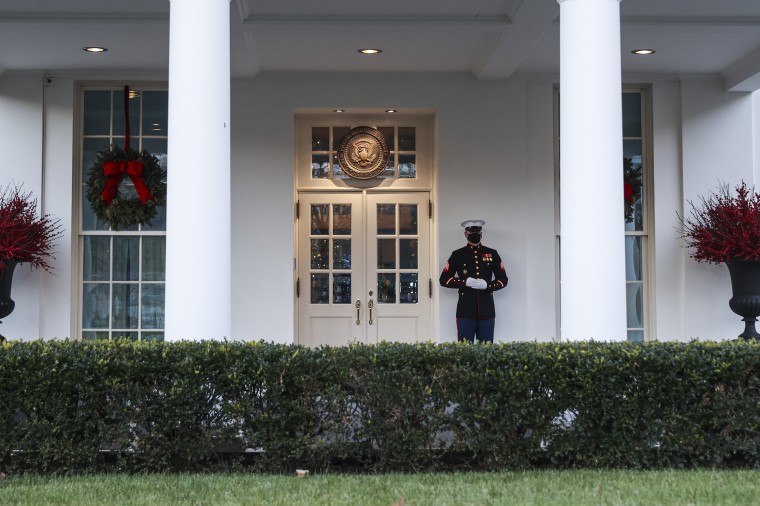Donald Trump threatened to veto funding for the military, but many observers assumed it was meaningless posturing. The outgoing president wouldn't actually follow through on strange threats, would he? Would Trump really want to be the first modern president to reject funding for his own country's armed service?
As it turns out, he was serious.
President Donald Trump on Wednesday vetoed the annual military spending bill because it did not modify a law that provides liability protections to tech companies and would have authorized the renaming of military bases named for Confederate generals. The veto, which Trump had threatened for weeks, sets up a showdown with fellow Republicans, who must now decide if they will override his decision.
If you're new to the story, let's review how we arrived at this point.
The National Defense Authorization Act (NDAA) is a massive, annual defense spending bill that funds the United States military -- including the money to pay troops' salaries -- but it's not just a spending bill. As NBC News recently explained, the NDAA "guides Pentagon policy and cements decisions about troop levels, new weapons systems and military readiness, military personnel policy and other military goals."
Trump has committed to vetoing the bill -- which has passed annually for six decades -- but he's struggled to settle on a single explanation. The Republican initially said he opposed the bill because he was desperate to protect the names of bases named after Confederate leaders, and the bipartisan NDAA would require the installations to instead be named after those who served the United States. When lawmakers ignored him, the president then demanded that the NDAA strip social-media companies of liability protections, which even conservative Republican lawmakers conceded couldn't be addressed through this legislation.
Desperate for something coherent, Trump eventually said he opposed the NDAA because it wasn't tough on China, which proved to be the opposite of the truth.
Regardless, on the last possible day in the process in which the president could veto the defense package, he followed through.
The bill now returns to Capitol Hill, where lawmakers will try next week to override the veto. Trump's odds of success aren't great: the Democratic-led House passed the NDAA, 335 to 78, and a few days later, the Republican Senate followed suit, approving the NDAA, 84 to 13.
With those numbers, overriding Trump with a two-thirds majority shouldn't be much of a problem, though next week's showdown may yet get a little tricky. How many members will show up the week between Christmas and New Year's? How many will take advantage of the proxy system? How many congressional Republicans are prepared to humiliate their party's outgoing president, handing him his first veto override as he prepares to exit the White House?
By any fair measure, Trump has no one to blame but himself for this mess. He backed himself into a corner for no reason and no plan for success. If the president failed to veto the NDAA after making a bunch of threats, he'd look weak. If Trump's veto is overridden, he'll look weak.
And if Congress fails to override his veto, he'll be the guy who rejected a raise for U.S. troops for no reason, forcing Congress to start over in the new year.

